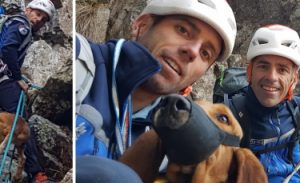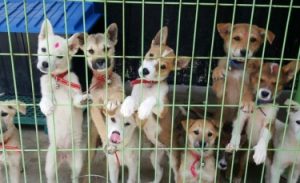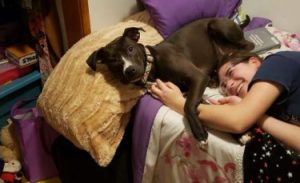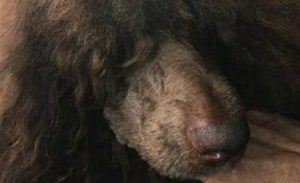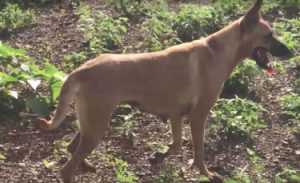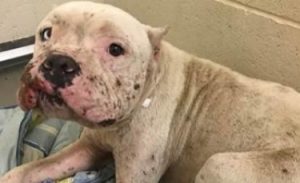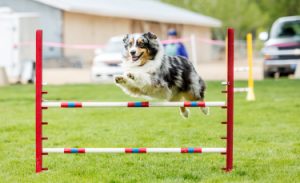Other names: Aïnou Ken, Ainu Ken, Chien de Hokkaïdo
The Hokkaïdo Ken is a medium-sized hunting and companion dog of balanced and harmonious proportions, of sturdy construction and solid bones. His musculature is firm and well defined. The gait of the Hokkaïdo Ken is characterized by light, fast and active movements.
<!–
–>
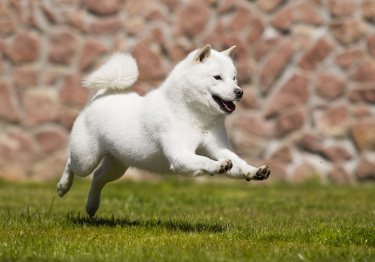
| Half-long | |
| Japan | |
| Average | |
| Triangular |
| Sex | Weight | Cut |
|---|---|---|
| Female | From 18 kg to 23 kg | From 45 cm to 49 cm |
| Male | From 20 kg to 25 kg | From 48 cm to 52 cm |
History of the breed
the Hokkaido Ken races down the old Japanese medium sized dogs that accompanied migrants from Honshu (the main island of Japan) to Hokkaido during the Kamakura period (12th century). It was also long called Ainu Ken, in reference to the Ainu, an indigenous population that inhabited the island of Hokkaido and who traditionally bred this dog for hunting bears and other animals .
The Hokkaïdo Ken breed was definitively recognized by the FCI (Fédération Cynologique Internationale) on April 22, 1964. Its official FCI standard in force was published on October 30, 2016.
Physical features
His hair: straight and fairly hard in texture. The outer coat is associated with a soft and dense undercoat. More bushy and long on the tail.
Its color: sesame, brindle, red, black, black and tan, white.
His head: the appearance typical of primitive Asian dogs (triangular shape and small pointed ears). The skull and forehead are broad and slightly flattened, the stop light but defined, the black nose (less pigmentation in white dogs is tolerated), the wedge-shaped muzzle, the lips firm and with black edges, the jaws strong and scissor bite, the cheeks well developed.
His ears: small, triangular in shape and slightly tilted forward.
His eyes: almost triangular in shape, not too small and dark brown in color.
His body: of robust and harmonious conformation. The withers are high, the back straight and strong, the kidney moderately broad and muscular, the croup rather sloping, the chest well developed, deep and rather broad, the ribs well sprung and the belly slightly raised.
Its tail: set high, thick, carried above the back and well curved.
Behavior and character
| Affectionate | |
|---|---|
| Calm | |
| Protective | |
| Independent | |
| Hunter | |
| Barks / howls |
Behavior with others
| Cohabitation with children | |
|---|---|
| Sociable with other animals | |
| Love strangers |
the Hokkaido Ken is a tough dog, full of dignity , loyal , very determined and intelligent . Presenting a balanced temperament, the Hokkaïdo Ken is rather obedient compared to other dogs in its category. He gets along with the whole family , is particularly attached to his master and is a good watchdog thanks to his alert character.
The Hokkaïdo Ken
is it right for you? Take the test!
Education
| Clever | |
|---|---|
| Obedient |
The education of Hokkaido Ken requires a dose of firmness , but without any form of brutality. He does not accept the balance of power, giving the best of himself when he feels valued and loved by his master. Positive reinforcement works very well with this dog.
Living conditions
| Suitable for apartment living | |
|---|---|
| Good for new masters | |
| Love it hot | |
| Love the cold |
the Hokkaido Ken is aimed mainly at active teachers , able not only to offer him daily exercise , but also to show firmness and justice in his education. The ideal living environment for a Hokkaïdo Ken dog would be the countryside or the proximity of a natural site (forest, beach, mountain …), and living in a house with a large garden . Apartment life suits him much less.
Health
| Solid | |
|---|---|
| Ease of gaining weight |
the Hokkaido Ken is a strong , resistant and enduring dog. There is not much to fear from a health standpoint in this dog.
Hypoallergenic breed
No
Litter size
Between 4 and 8 puppies
| Major concerns |
|
||||||
| Minor concerns |
|
To protect yourself from these risks and insure your companion in the event of health problems, Woopets recommends Hokkaïdo Ken dog insurance .
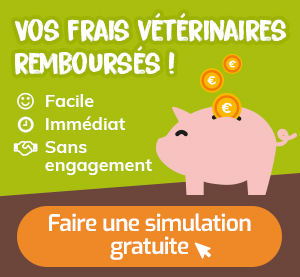
function showAssuranceForm () {var siteReferer = var id_race_association = ‘181’; //console.log(id_race_association);success: function (html) {}});}document.addEventListener (‘DOMContentLoaded’, () => {$ (‘# assuranceModalBanner’). on (‘show.bs.modal’, function (event) {showAssuranceForm ();});});
Life expectancy
Minimum: 11 years old
Maximum: 13 years
The life expectancy of a Hokkaïdo Ken is, on average, between 11 years and 13 years.
Calculate the human age of your Hokkaïdo Ken!
To choose… 1 year 2 years 3 years Four years 5 years 6 years 7 years 8 years 9 years 10 years 11 years old 12 years 13 years 14 years old 15 years old 16 years old 17 years 18 years old 19 years old 20 years 21 years old
Maintenance and hygiene
| Ease of maintenance | |
|---|---|
| Cost of maintenance | |
| Hair loss |
| Drool level | |
|---|---|
| Ease of grooming |
the Hokkaido Ken undergoes 2 periods of moult per year, during which the old hair is replaced to constitute a dress more adapted to the seasonal specificities. The maintenance of this dog remains not very restrictive , but it must be ensured on a regular basis.
It is recommended to brush the dog once or twice a week . During the moult, brushing becomes more frequent, ideally daily in order to eliminate all the dead hairs and to ventilate the coat properly.
Her teeth need to be brushed regularly to eliminate tartar build-up and the proliferation of bacteria. If they do not wear out naturally, its claws need to be cut. If you are new to this it is recommended to seek advice from a veterinarian or groomer.
Price and budget
Purchase price
Mini
NC Maxi
NC
The purchase price of a Hokkaïdo Ken is between NC and NC.
Annual maintenance cost
Mini
€ 450 Maxi
650 €
The annual maintenance cost of a Hokkaïdo Ken is between 450 € and 650 €.
No name is currently proposed. Use our tool to find the name of your Hokkaïdo Ken!
Food
The diet of Hokkaïdo Ken must be adapted to his level of physical activity, his size and his age.
Want the best for your dog?
Create tailor-made food for your Hokkaïdo Ken
I discover !
PROMO -30% | Delivered to you!

Physical activity
| Athletic | |
|---|---|
| Energy level | |
| Potential to play |
Active dog, the Hokkaïdo Ken needs to exercise daily , with one or 2 long outings each day with games.
Competitions
| Classifications & Standards |
|
Others
| Master character <span class="btnTooltip qTip2" title="- Calm: the master must be gentle and know how to show patience. – Active: the owner must be energetic and dynamic to live in harmony with his dog. – Hyperactive: the owner must be stimulating and very restless to suit the temperament of his dog.”> |
Active |
|---|
FCI Information
FCI No.
261
FCI Group
Group 5: Spitz-type and primitive-type dogs
Recognized by FCI
Since 1964
</div


